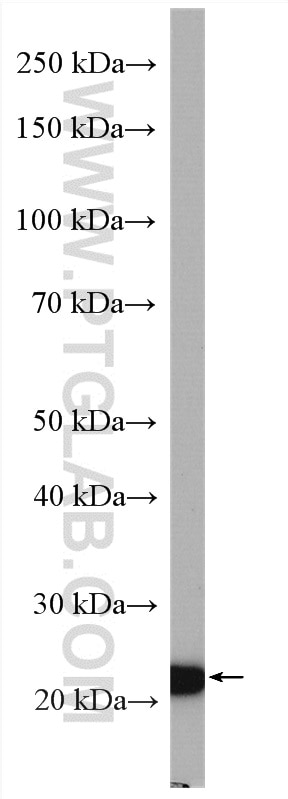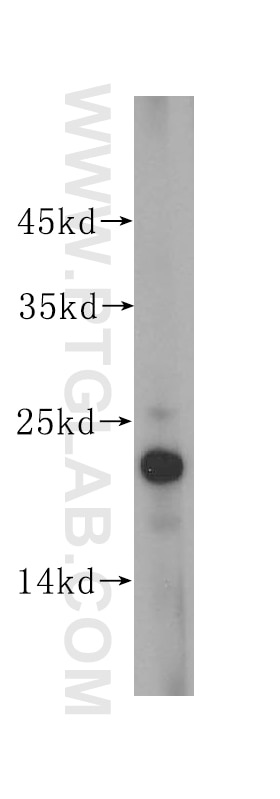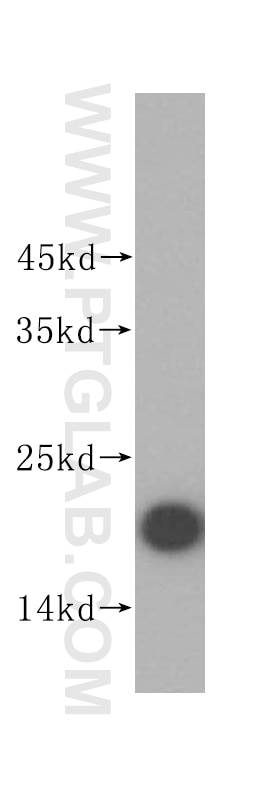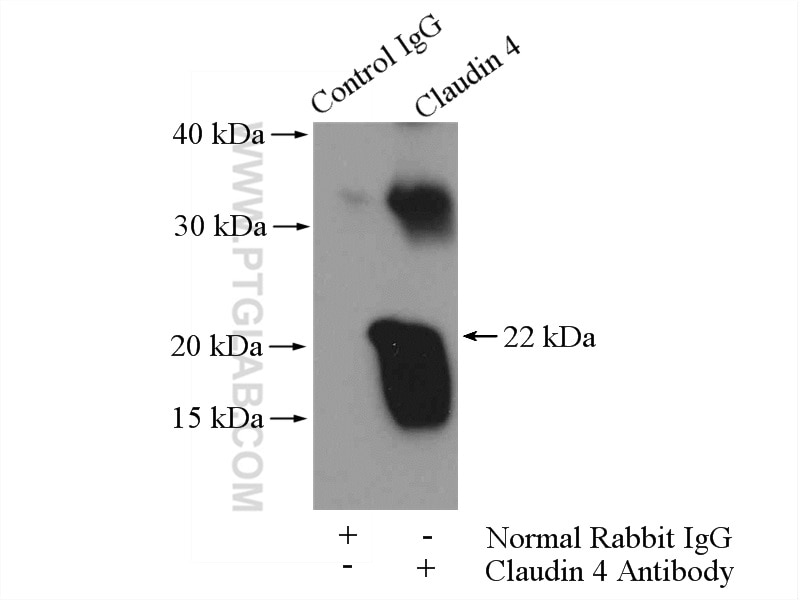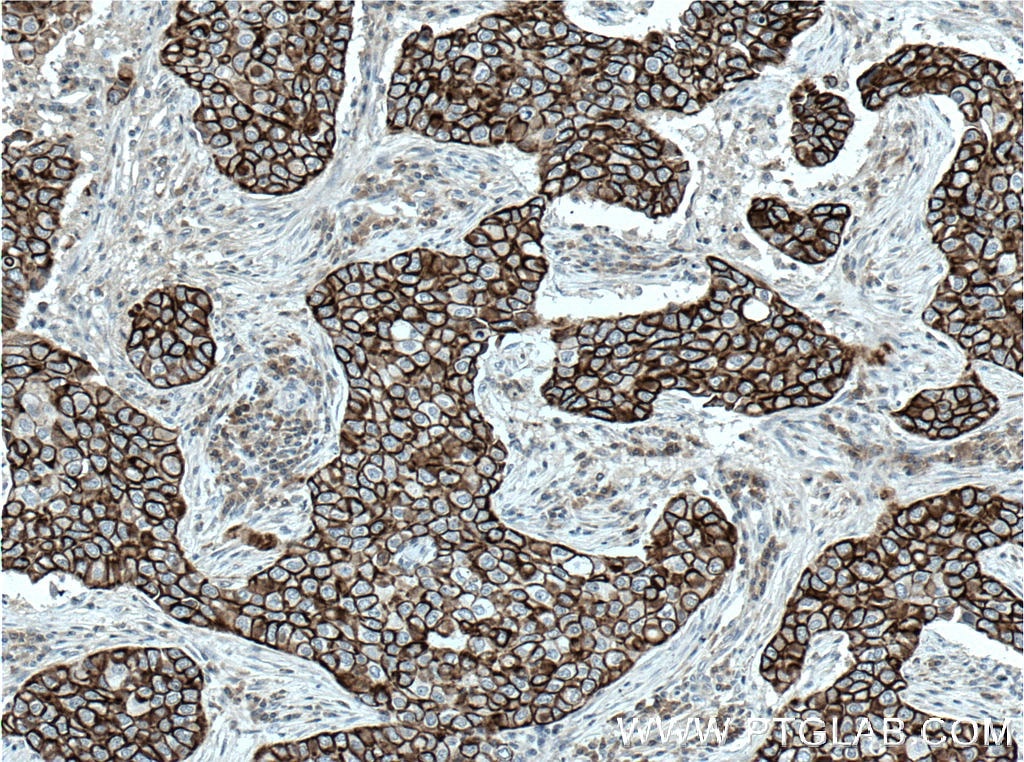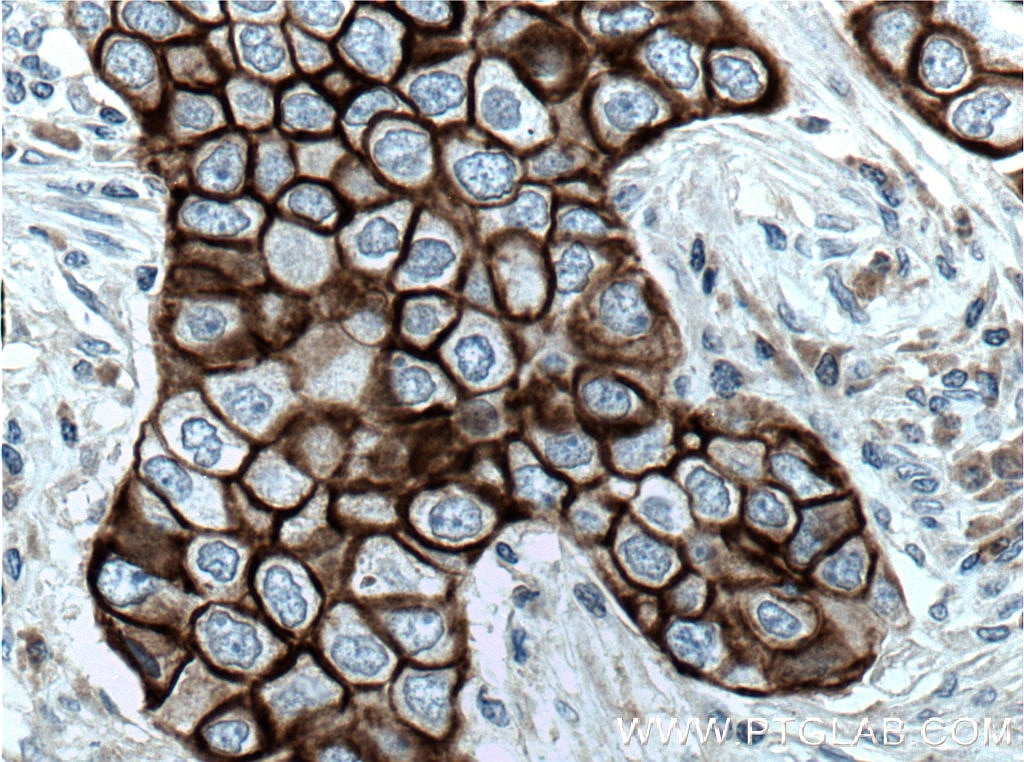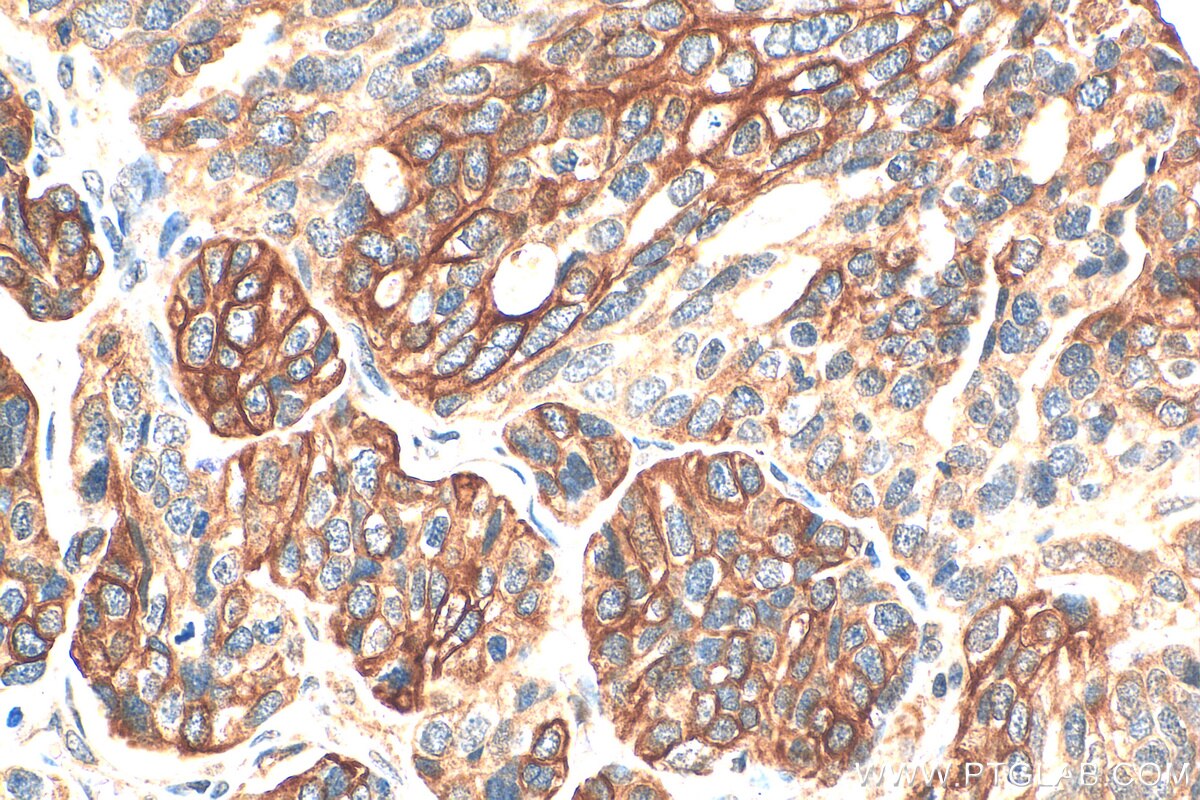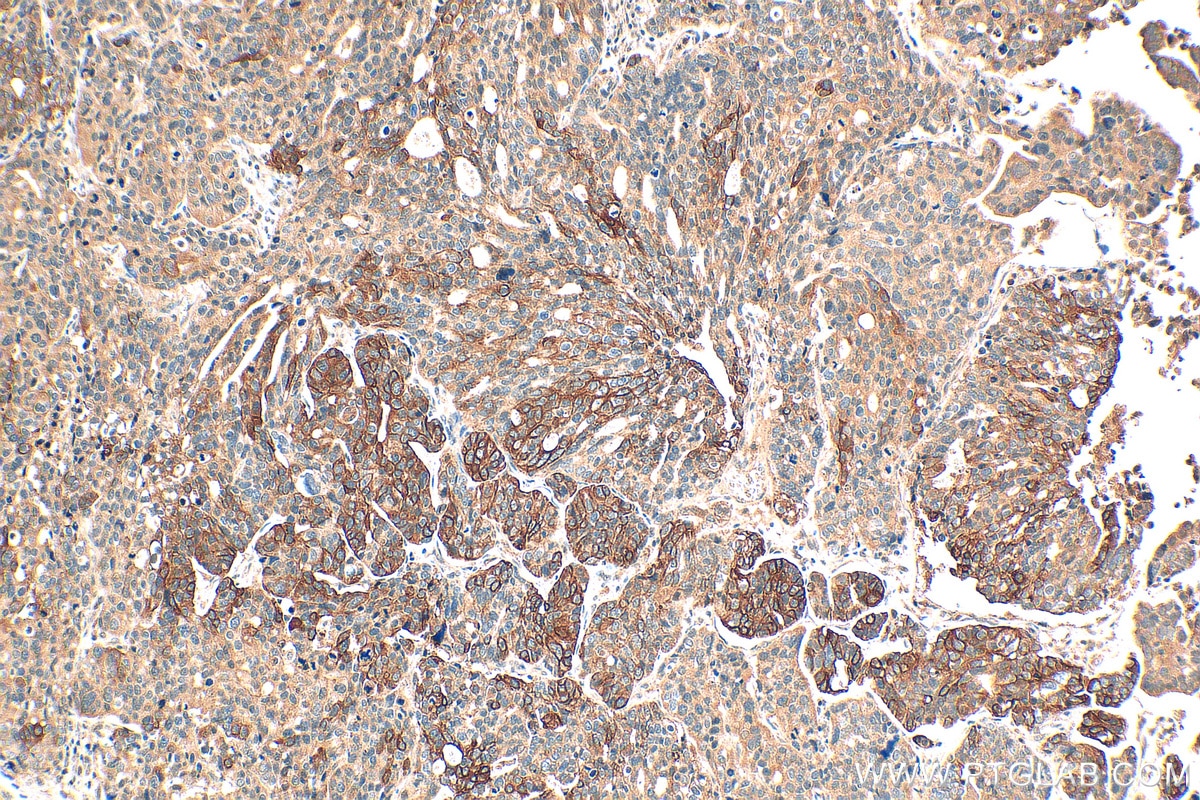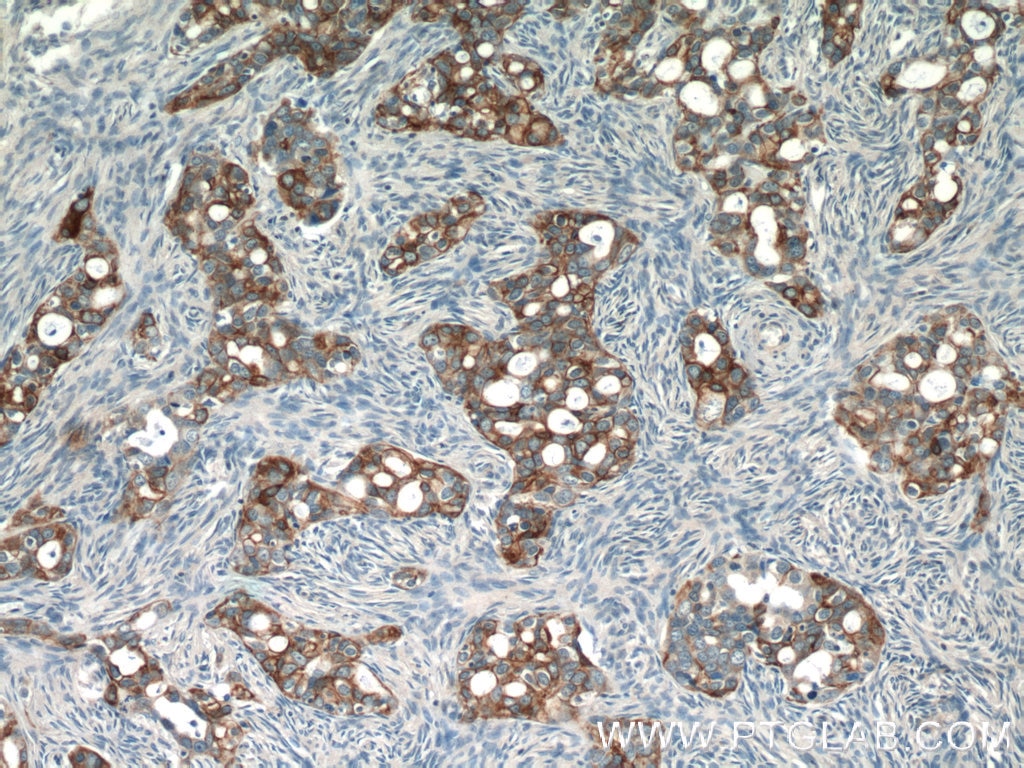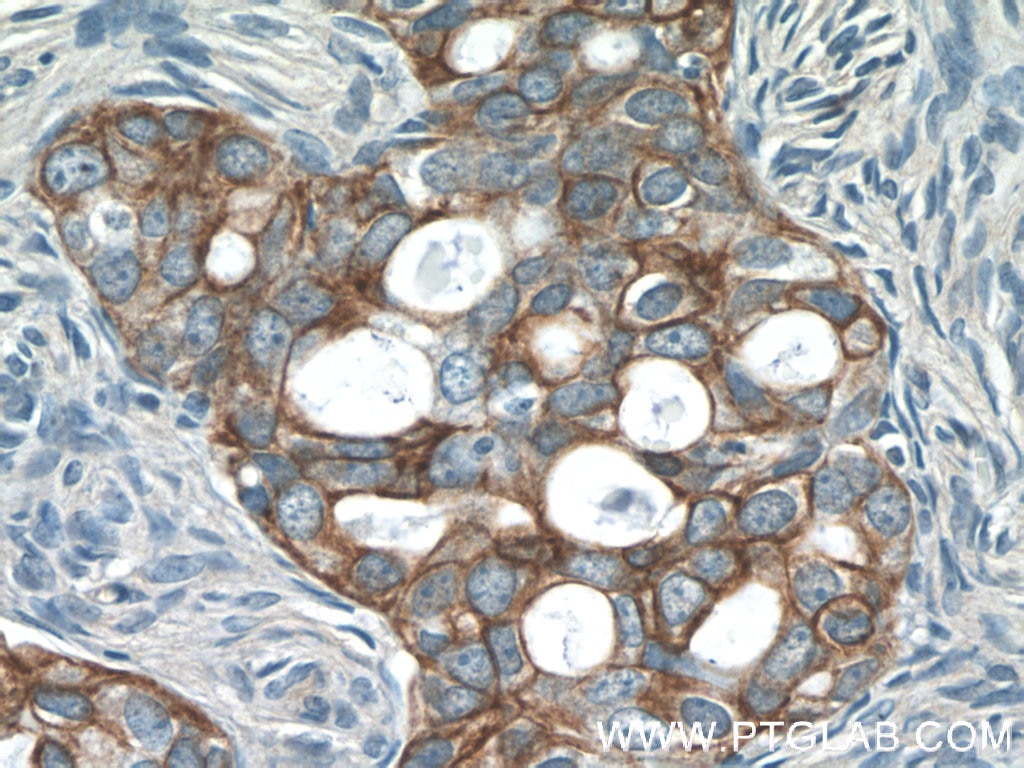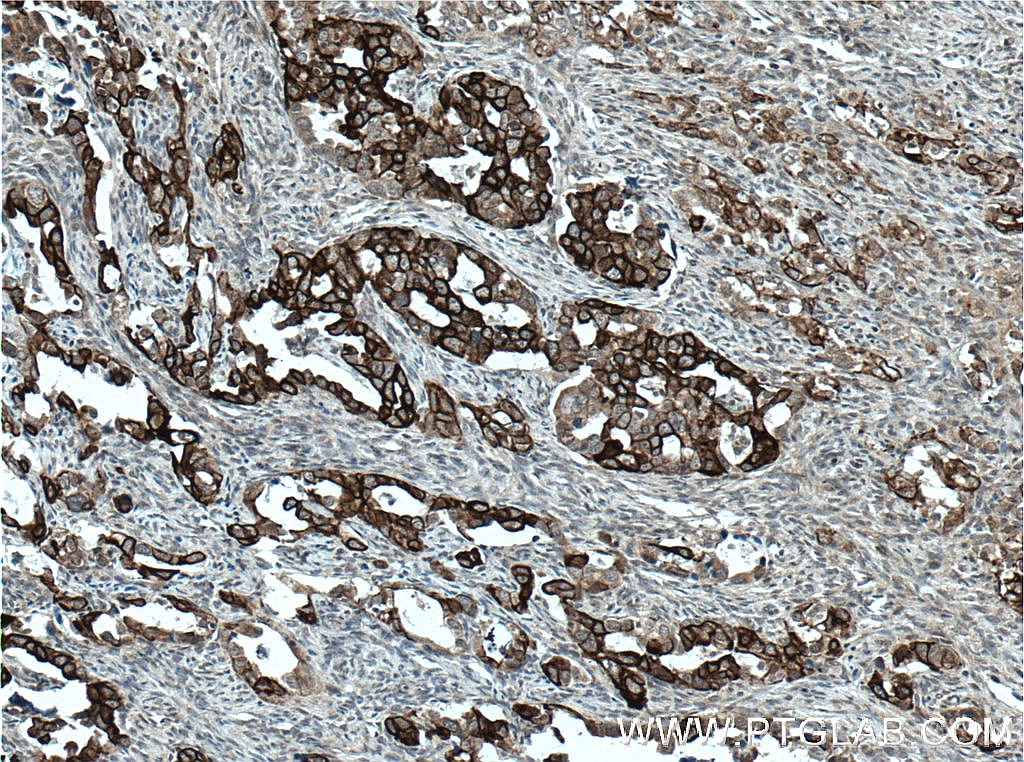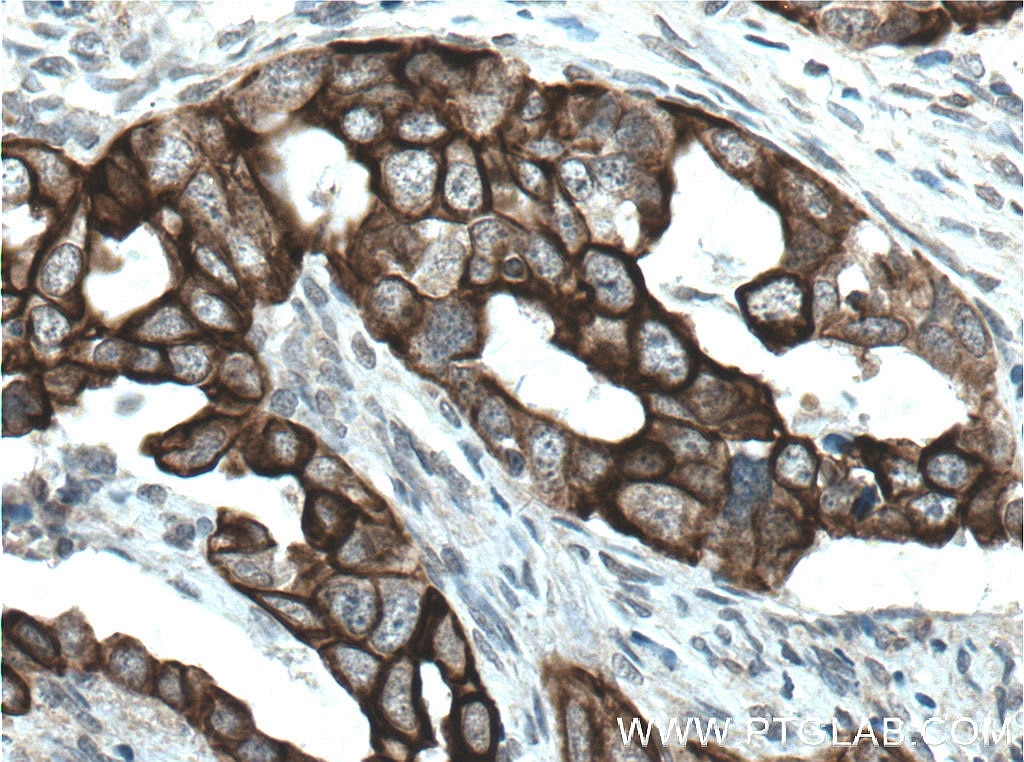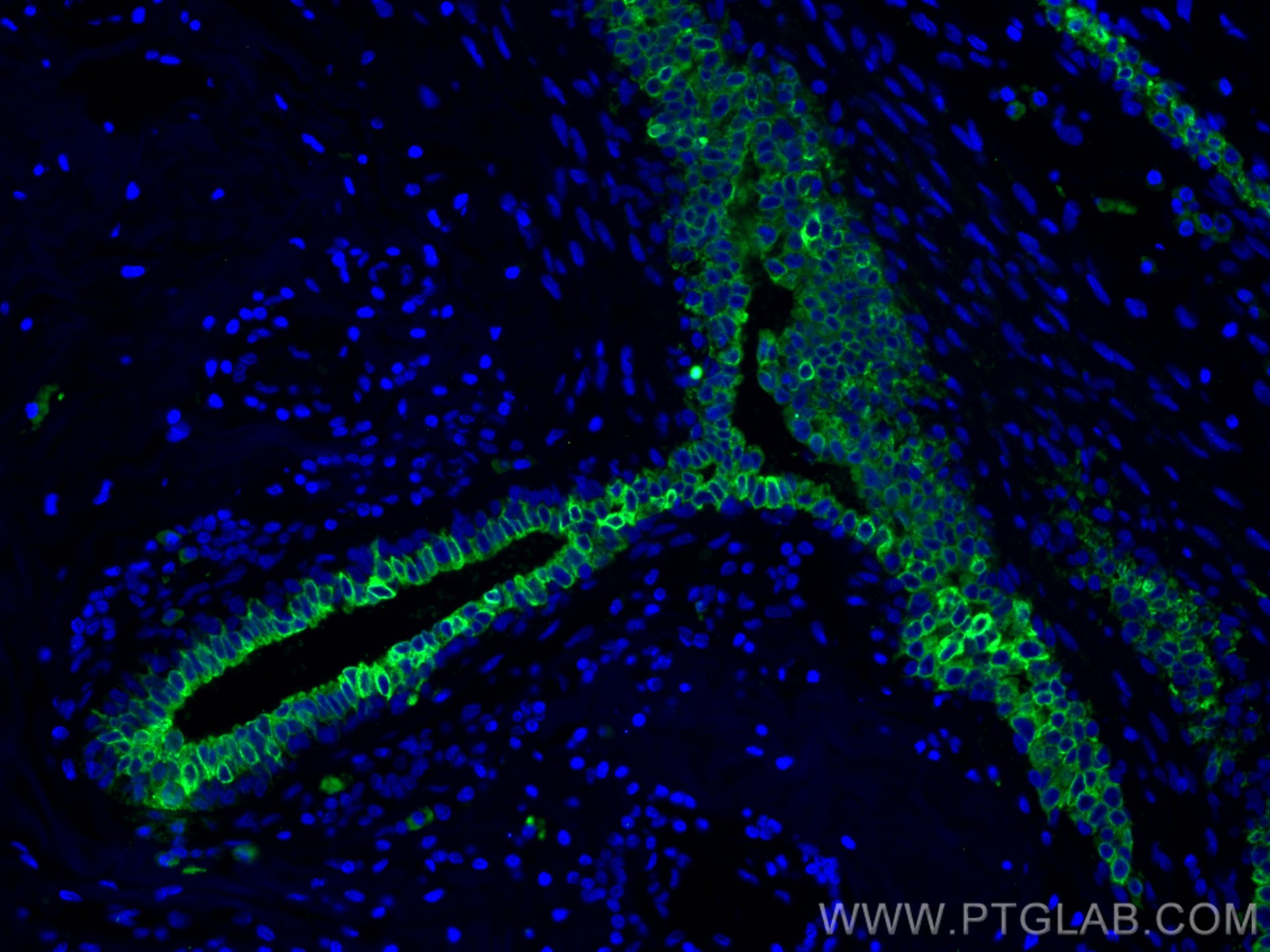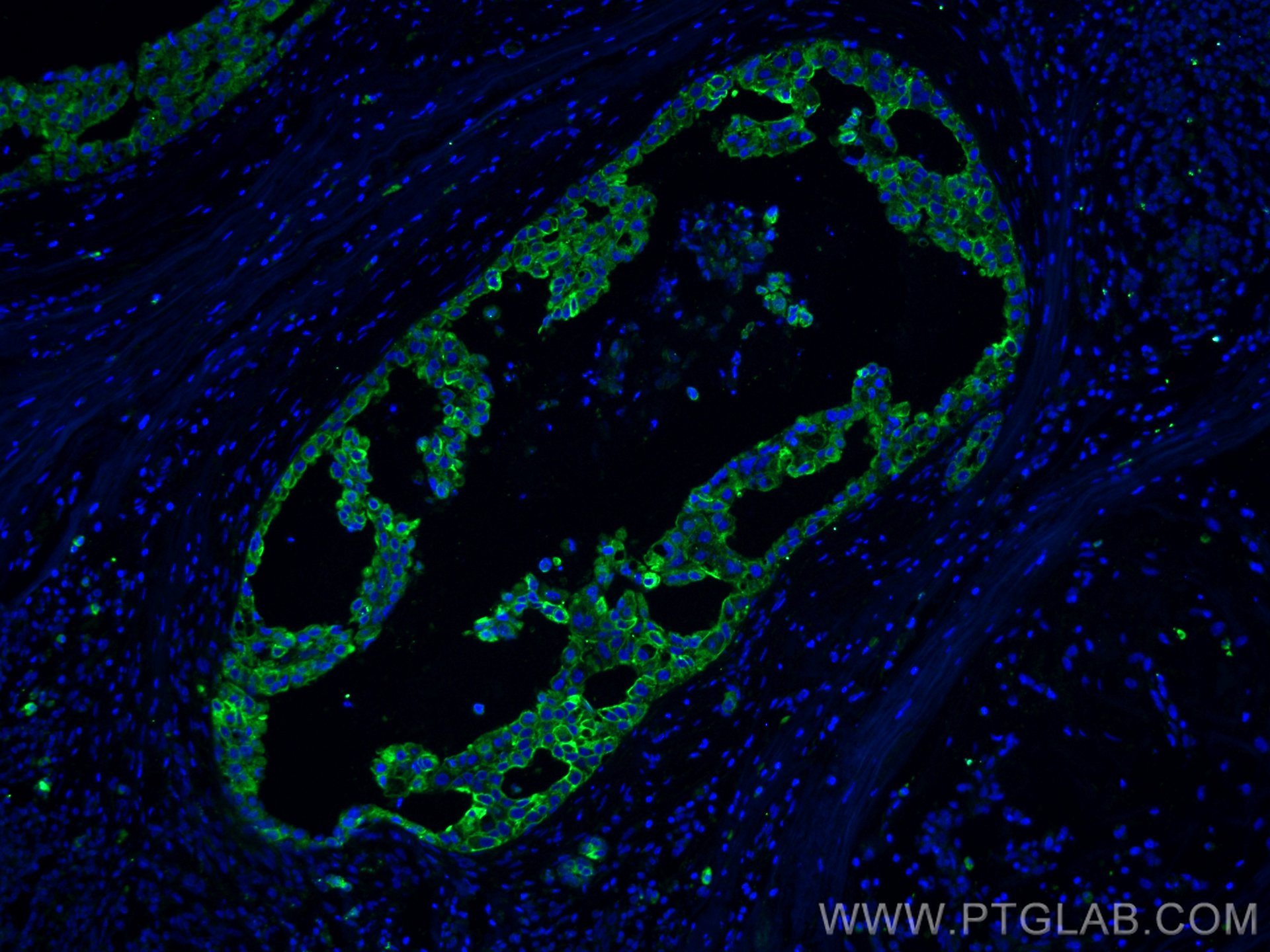Validation Data Gallery
Tested Applications
| Positive WB detected in | MDA-MB-453s cells, mouse small intestine tissue, human placenta tissue |
| Positive IP detected in | human placenta tissue |
| Positive IHC detected in | human breast cancer tissue, human ovary tumor tissue Note: suggested antigen retrieval with TE buffer pH 9.0; (*) Alternatively, antigen retrieval may be performed with citrate buffer pH 6.0 |
| Positive IF-P detected in | human breast cancer tissue |
Recommended dilution
| Application | Dilution |
|---|---|
| Western Blot (WB) | WB : 1:200-1:1000 |
| Immunoprecipitation (IP) | IP : 0.5-4.0 ug for 1.0-3.0 mg of total protein lysate |
| Immunohistochemistry (IHC) | IHC : 1:50-1:500 |
| Immunofluorescence (IF)-P | IF-P : 1:50-1:500 |
| It is recommended that this reagent should be titrated in each testing system to obtain optimal results. | |
| Sample-dependent, Check data in validation data gallery. | |
Published Applications
| KD/KO | See 1 publications below |
| WB | See 33 publications below |
| IHC | See 15 publications below |
| IF | See 11 publications below |
| CoIP | See 1 publications below |
| RIP | See 1 publications below |
Product Information
16195-1-AP targets Claudin 4-specific in WB, IHC, IF-P, IP, CoIP, RIP, ELISA applications and shows reactivity with human, mouse, rat samples.
| Tested Reactivity | human, mouse, rat |
| Cited Reactivity | human, mouse, rat, pig |
| Host / Isotype | Rabbit / IgG |
| Class | Polyclonal |
| Type | Antibody |
| Immunogen | Peptide 相同性解析による交差性が予測される生物種 |
| Full Name | claudin 4 |
| Calculated molecular weight | 22 kDa |
| Observed molecular weight | 22 kDa |
| GenBank accession number | NM_001305 |
| Gene Symbol | Claudin 4 |
| Gene ID (NCBI) | 1364 |
| RRID | AB_2082969 |
| Conjugate | Unconjugated |
| Form | Liquid |
| Purification Method | Antigen affinity purification |
| UNIPROT ID | O14493 |
| Storage Buffer | PBS with 0.02% sodium azide and 50% glycerol , pH 7.3 |
| Storage Conditions | Store at -20°C. Stable for one year after shipment. Aliquoting is unnecessary for -20oC storage. |
Background Information
Claudins are a family of proteins that are the most important components of tight junctions, where they establish the paracellular barrier that controls the flow of molecules in the intercellular space between the cells of an epithelium. They are small (20-27 kDa) proteins with similar structures. They have four transmembrane domains, with the N-terminus and the C-terminus in the cytoplasm. This antibody is specifically against Claudin 4. Claudin 4 is overexpressed in a variety of cancers. It can be used as a predictor of recurrent malignant pleural effusion in patients with advanced non-small cell lung cancer (PMID: 38629624).
Protocols
| Product Specific Protocols | |
|---|---|
| WB protocol for Claudin 4-specific antibody 16195-1-AP | Download protocol |
| IHC protocol for Claudin 4-specific antibody 16195-1-AP | Download protocol |
| IF protocol for Claudin 4-specific antibody 16195-1-AP | Download protocol |
| IP protocol for Claudin 4-specific antibody 16195-1-AP | Download protocol |
| Standard Protocols | |
|---|---|
| Click here to view our Standard Protocols |
Publications
| Species | Application | Title |
|---|---|---|
Cell Metab Gut microbiota modulate distal symmetric polyneuropathy in patients with diabetes | ||
Gut Microbes S-amlodipine induces liver inflammation and dysfunction through the alteration of intestinal microbiome in a rat model | ||
J Hazard Mater Dual effects of JNK activation in blood-milk barrier damage induced by zinc oxide nanoparticles. | ||
Free Radic Biol Med Prenylated xanthones from mangosteen (Garcinia mangostana) activate the AhR and Nrf2 pathways and protect intestinal barrier integrity in HT-29 cells. | ||
Cancers (Basel) Targeting PVT1 Exon 9 Re-Expresses Claudin 4 Protein and Inhibits Migration by Claudin-Low Triple Negative Breast Cancer Cells. | ||
EBioMedicine Akkermansia muciniphila prevents cold-related atrial fibrillation in rats by modulation of TMAO induced cardiac pyroptosis. |
